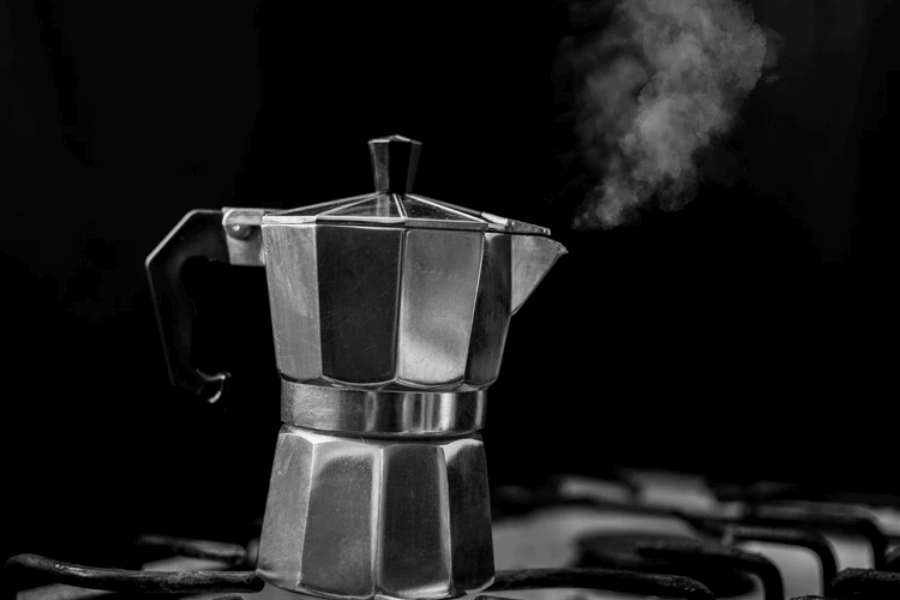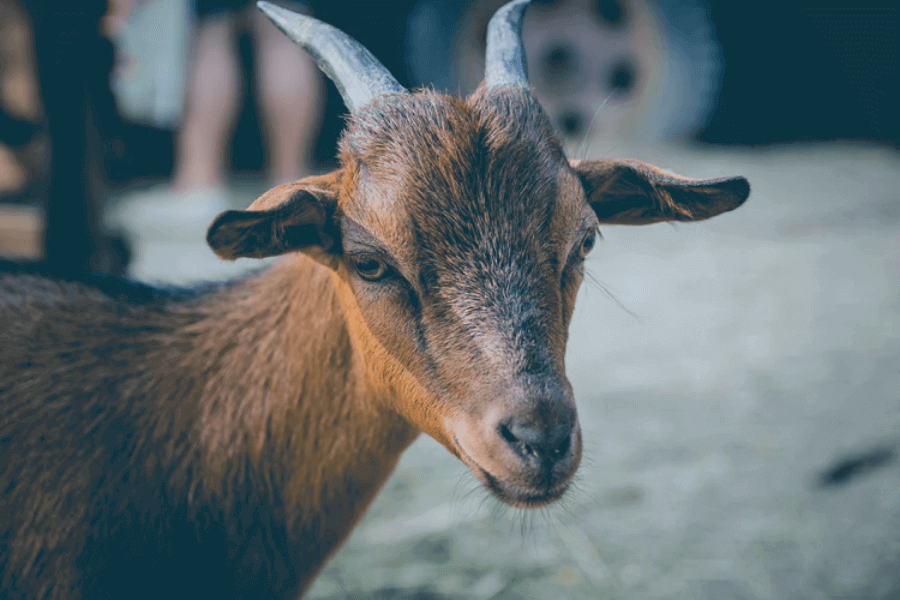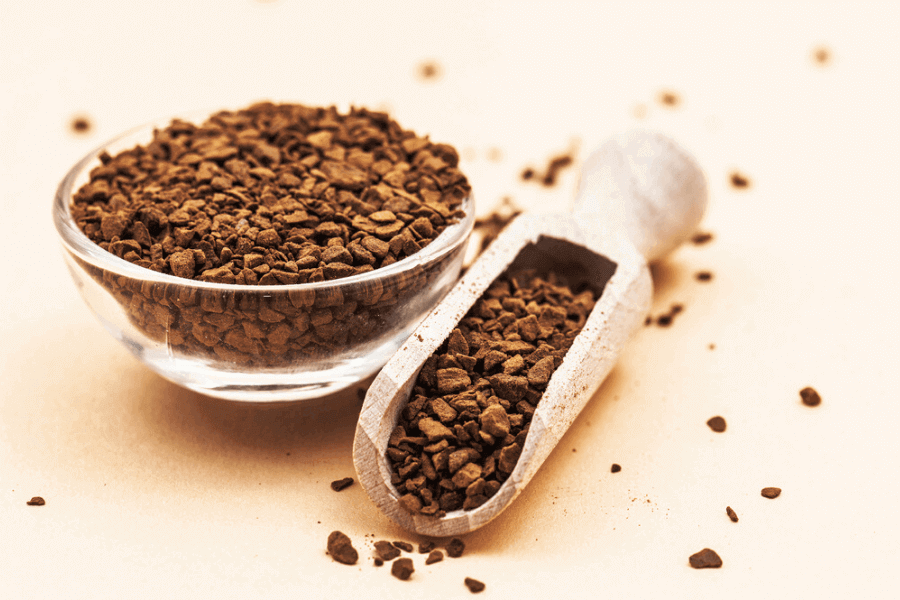Who Invented Coffee? A Close up of the History of Coffee
Coffee is one of the most consumed drinks in the world, is common in every country, and is a multi-billion dollar industry. It’s so ingrained in our collective culture that we often forget it’s just a beverage. So let’s have a look at the history of coffee.
How did it become what it is today? Who invented coffee, and in so doing changed the world? Today we’re going back in time to take a closer look at the history of coffee, the country coffee originated from, which country it was discovered in, and more.
There’s a lot to learn, so I’ve broken it down for you. Here’s what’s coming up:
At a Glance: A Coffee History Timeline
850 AD: The coffee berry’s energizing properties are discovered by an Ethiopian man known as Kaldi.
1400s: Coffee is enjoyed at public houses and exported from Ethiopia to Yemen.
1500s: Turks invent the czeve, the first coffee pot.
1600s: Coffee is popularized in Europe and arrives in the USA with colonizers.
1819: Caffeine in coffee is identified.
1889: Hanson Goodrich patents the modern percolator.
1905: Ludwig Roselius stumbles upon decaffeinated coffee.
1906: The first espresso machine is unveiled.
1908: Melitta Bentz creates the first paper coffee filter and, by consequence, the manual drip coffee maker.
1927: The first large commercial coffee makers are created by WMF Coffee Machines.
1929: The French press takes form.
1930s: Nestle creates modern instant coffee.
1933: The moka pot is invented.
1954: Gottlob Widmann invents the world’s first electric drip maker.
1972: Mr. Coffee releases the first automatic coffee machine.

How Long Has Coffee Been Around?
If we want to explore coffee’s true origins, it makes sense to go back to the very beginning. But, there’s one problem with this: we have no idea when that was exactly because coffee predates modernity and potentially even humanity.
In case you didn’t know, coffee comes from the Coffea plant (read our post about coffee bean history for a more detailed explanation). We don’t have any solid evidence of when exactly Coffea appeared on Earth, we do know a bit about its plant family, Rubiaceae.
There are claims that Rubiaceae existed as far back as the Cretaceous period — when dinosaurs still dominated — but this is not accepted due to a lack of proof. However, Rubiaceae fossil records date it to the Eocene Epoch, which took place on Earth 56 to 33.9 million years ago. To put things in perspective, humans have existed for approximately 200,000 years.
Where Did Coffee Originate?
Those same fossil records show ancient traces of Rubiaceae scattered around the USA, Australia, and Panama. We can’t say for sure if this is where coffee was born for two reasons: though the fossils come from these areas, it doesn’t necessarily mean they originated there, and the fossils are not specifically the Coffea genus.
So what is the birthplace of coffee? Modern records show that Coffea Arabica — the first coffee we cultivated and still the most popular variety — is native to Ethiopia. This has everything to do with the rise of coffee as we know it.
When Was Coffee Discovered?
It wasn’t always a part of our culture, so when and how was coffee discovered? More importantly, who discovered coffee?
No one knows the true beginnings of coffee consumption because there are no official records. That said, the legend of Kaldi is often credited as the birth of bean culture. Although we can’t verify it, most have come to accept it as the truth (or at the very least, a version of the truth).
Kaldi and the Dancing Goats
Many believe that coffee was first discovered by an Ethiopian goat herder we know as Kaldi. After his goats fed on berries, he noticed that they were unusually hyper, frolicking and ‘dancing’ instead of lazing as they usually did after eating. Putting two and two together, Kaldi concluded that the berries had energizing effects and told the local abbot his theory.
The abbot put the newly discovered energy berries to the test, indulging in them before a long prayer session. He reported that the berries helped him stay alert throughout the many hours of prayer and shared his findings with the rest of the monastery. From there it spread throughout Ethiopia and beyond.
Kaldi and the dancing goats lived around 850 AD, more than a thousand years ago.
Documented history tells us that the earliest evidence of coffee consumption is it being exported from Ethiopia in the 15th century.

How Long Have People Been Drinking Coffee For?
You may have noticed that in the Legend of Kaldi, coffee berries were enjoyed, but it doesn’t specify whether or not people were drinking it.
Like its discovery, the history of coffee making is largely unverified, but there is a lot of speculation. Some legends say that after Kaldi presented the berries to the monastery, one monk disapproved and cast them into a fire. The result was the first roasted beans, the aroma of which no one could resist.
Other legends say that the energizing properties of coffee berries were noted, and attempts to improve their flavor — by burning and boiling them — is what sparked coffee as we know it today.
However, it seems these are just stories. Although the history of coffee is shrouded in mystery, its first export records show that it was enjoyed as a beverage, but it could have been distilled and enjoyed as a berry wine.
Around the same time, public coffee houses rose to prominence. They were so popular that they played the biggest role in world coffee history — introducing travelers to its delights. From what we know, we’ve been enjoying coffee as a drink for at least 600 years.
Who Invented Coffee Makers?
Coffee has evolved a lot since we first began drinking it, and what we enjoy today is not the same drink that people enjoyed in the 1400s. Our changing brewing methods and technological advancements have made sure of that.
So how did coffee makers come to be, and who invented them?
The First Brewer
The Turks were the first to use coffee makers, but the time of invention is disputed. At issue is that some accounts state the first coffee pot was created around 500 AD — before coffee was discovered. Since coffee originated from Ethiopia, it’s likely that the first coffee pot was created after the 1500s when coffee houses boomed.
When we first started brewing coffee, beans (or the grounds of the time) were boiled in a pot of water along with other spices. It took hours to extract and was closer to soup than joe.
The Turkish czeve is a small pot with a long handle and a spout, intended to brew coffee and pour it too. No one person is credited with the czeve’s invention, though.

Coffee brewing naturally evolved over time, but as far as we know, there weren’t any specialized brewing methods. Everyone applied water and heat and coffee was prepared by immersion. Makeshift cloth filters were used to prevent grounds from entering the joe.
Coffee’s next significant innovation wouldn’t occur until 1889 when the modern percolator was patented by an American named Hanson Goodrich. Although there were percolator designs before this, their mechanics differed vastly from what we call a percolator today.
This is when western coffee brewing truly began. Percolators changed brewing from simply boiling grounds to forcing flavors out via heat and pressure. Some believe the origins of coffee extraction lie in the percolation method.
But it wasn’t without fault; extraction couldn’t be controlled well enough for optimal brewing and percolated coffee was bitter and over-extracted. Good came of it though as it sparked brewing innovations. The drip maker, French press, and moka pot followed in 1908, 1929, and 1933 respectively, each one hoping to improve coffee’s quality, profile, and most importantly, flavor.
The First Coffee Machine
Coffee’s renaissance and coffee as a cultural institution began with modern coffee machines. Many link this to the first espresso machine, which was originally patented by an Italian named Angelo Moriondo in 1896.
The espresso machine filled a gap in the market and enabled the production of fast coffee — technically, the first example of instant coffee. To explore espresso’s history in more detail, check out our guide on how to enjoy it the Italian way.
Espresso dominated for some time before new machines gave it a run for its money. Large-scale commercial machines made waves in 1927, and the first electric drip maker was invented in Germany in 1954 by Gottlob Widmann.
The First Automatic Coffee Maker
We can’t pinpoint exactly who invented the automatic coffee machine, but it’s credited to the Mr. Coffee company, who debuted the first automatic drip coffee maker intended for home use in 1972.
Once automatic machines rose, a world of innovation followed. Now, we have programmable home machines that brew without human operation, and pod machines with barcode readers, self-cleaning functions, and even automatic energy conservation.
Modern coffee history, which is too vast to detail here, can be perfectly painted using the eras as a canvas. Our coffee culture is undoubtedly a product of the information age, but it transitioned into the experience age.
We now emphasize convenience, luxury, and sophistication because we have the means to make coffee exactly how we like it with minimal effort.
Who Invented the Different Types of Coffee?
It seems that coffee history is a shining example of knowing that we don’t know much. But is the history of coffee drinks more definable?
Alas, it’s almost as scattered. Some coffee origin stories are hilarious, for example, the great battle between Australia and New Zealand regarding who flat whites belong to.
There’s also the story of how the frappe came to be. Apparently, Dimitris Vakondios accidentally created it in 1957 when he had no hot water while traveling and tried his luck making instant coffee with cold water and ice.
But there are two types of coffee that should be emphasized based on their significance in coffee’s overall history.
Who Invented Instant Coffee?
Some believe that Frenchman Alphonse Allias should be credited as he patented a water-soluble coffee back in 1881. Others believe that Satori Kato, a chemist from Japan, created the world’s first powder coffee. There are even rumors that George Washington invented it.
But none of these are accepted. True instant coffee, as we enjoy it today, is the brainchild of the Nestle company. In the 1930s, the Brazilian government enlisted Nestle to help solve a problem: too many beans and no idea how to sell them since exports came to a standstill.
Nestle applied the same technique it used with powdered milk: spray-drying coffee to dehydrate and preserve it. The coffee industry changed forever with this innovation.

Who Invented Decaf?
Say what you want, decaf is still coffee, but how did it come to exist in a world that revered coffee’s energy boost?
In 1819, the lauded German author Johann Wolfgang Goethe wanted to know why exactly coffee kept him awake. Seeking answers, he handed some beans to a chemist named Friedlieb Ferdinand Runge and requested he investigate the matter. Runge became the first person to identify caffeine. But it wasn’t until a century later that scientists figured out how to extract it from coffee.
The first successful decaffeination is credited to Ludwig Roselius, also of Germany. He received a shipment of coffee beans that were damaged by seawater. Instead of discarding them, though, curiosity got the better of him and he processed and tested these beans anyway. He then noted that the beans had been stripped of their caffeine.
His findings led him to seek other ways of chemically decaffeinating coffee, and he eventually settled on Benzene. This method stayed in play for most of the 20th century until modern science declared Benzene a carcinogen and deemed it unsafe for food processing.
So, Who Invented Coffee as We Know It?
When I first started researching this topic, I believed it would come down to one of three answers:
- That no one invented coffee. It’s a plant with awesome properties that humanity happened to stumble upon.
- That the inventors of the manual brewers, with emphasis Hanson Goodrich, are certainly worthy of some credit. If not for them, we wouldn’t have the coffee culture we adore.
- Ethiopians, because that’s where coffee originated from.
Those three things do apply, but coffee’s history books are uncertain about so many particulars.
So it occurs to me that coffee wasn’t invented — it evolved alongside humans who, as a collective, transformed it from literal bean soup into the sophisticated, refined beverage we love.
The history of coffee may be in debate, but we should still show those dancing goats some love. If not for them, we may have ended up in a world without coffee.
Even the notion.
Conclusion
The history of coffee is complex and only a few coffee history facts are widely accepted.
We know that it originated in Ethiopia, spread in the 1500s, the Turks invented the first coffee pot, and that western brewing is credited to Hanson Goodrich — the inventor of the modern percolator.
For all intents and purposes though, coffee was never truly invented but discovered. After that, tools, methods, and machines enhanced it.
Coffee History FAQ
What Was Coffee Originally Used For?
The original use of coffee was similar to today’s use. Coffee berries (and the beverage they become), were used to improve energy and concentration. In many countries, and at various points in history when alcohol was prohibited, coffee was used to socialize instead.
How Did Coffee Get its Name?
Coffee was first known as “qahwah” in Arabic, then the Turks adopted it and called it “kahve.” The Dutch borrowed it too, altering the word to “koffie” and from there it made its way into English.
How Much Coffee Is Produced Every Year? Was Coffee Ever Illegal?
Surprisingly, yes! Many times, in fact. Although coffee was beloved since its discovery, many communities, cultures, and leaders took issue with it because it’s a stimulant. Mental Floss covered five times coffee prohibitions were attempted, though there are countless more bans enforced.





